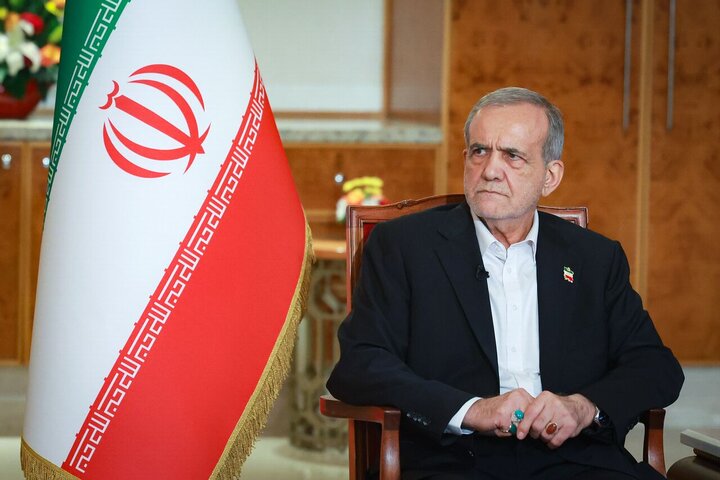
Pezeshkian announces suspension of ties with IAEA
 TEHRAN, Jul. 02 (MNA) – Iranian President Massoud Pezeshkian announced the suspension of Tehran’s cooperation with the International Atomic Energy Agency (IAEA).
TEHRAN, Jul. 02 (MNA) – Iranian President Massoud Pezeshkian announced the suspension of Tehran’s cooperation with the International Atomic Energy Agency (IAEA).
Earlier on June 25, Iran’s parliament (Majlis) approved a bill to suspend Tehran’s cooperation with the International Atomic Energy Agency (IAEA) following its politically-motivated resolution against the Islamic Republic.
The general and specific provisions of the bill to suspend cooperation with the IAEA have been approved by lawmakers, said Alireza Salimi, a member of the parliament’s presiding board, on Wednesday.
According to the parliament’s resolution, IAEA inspectors will not be permitted to enter Iran unless the security of the country's nuclear facilities and that of peaceful nuclear activities is guaranteed, which is subject to the approval of Iran’s Supreme National Security Council.
The vote came a few days after Qalibaf said the top legislative body was considering a bill to suspend Tehran’s cooperation with the UN agency.
“Majlis (the Iranian Parliament) is drafting a plan to suspend cooperation with the agency until tangible guarantees regarding the professional attitude of this international organization are received,” Qalibaf said during an open session of the parliament on Monday.
Iran is also considering an entry ban on the IAEA chief, Rafael Grossi, who has come under fire for facilitating the Israeli-American aggression against Iran.
Kowsari, a senior lawmaker, said last week that he has urged the Supreme National Security Council to impose an entry ban on Grossi.
Based on Grossi’s politically-motivated reports, the IAEA Board of Governors passed an anti-Iran resolution days ahead of the Israeli aggression against the Islamic Republic.
It was the first claim of non-compliance against Iran in nearly 20 years, falsely accusing the country of violating safeguards obligations, with the measure adopted by 19 votes in favor, 11 abstentions, and 3 countries opposed (Russia, China, and Burkina Faso).
The controversial resolution, pushed by the European troika – Britain, France and Germany - and backed by the United States, prompted strong condemnations from the Islamic Republic and led to announcements of a new nuclear facility and upgradation of centrifuges to an advanced level at the Fordow enrichment plant.
Grossi’s political and biased report and the subsequent resolution, according to analysts, facilitated the Israeli regime’s brutal aggression on June 13, leading to the assassination of several nuclear scientists as well as high-ranking military commanders.
After the Israeli aggression, including against the Natanz nuclear plant in central Iran, the UN nuclear agency chief stopped short of unequivocally condemning the terrorist act, which was in brazen violation of international law.
He also refused to condemn the American aggression against three key Iranian nuclear sites—Fordow, Natanz, and Isfahan—using B-2 stealth bombers armed with Massive Ordnance Penetrators and cruise missiles.
Copyright © 2025 ৭১ নিউজ বিডি. All rights reserved.